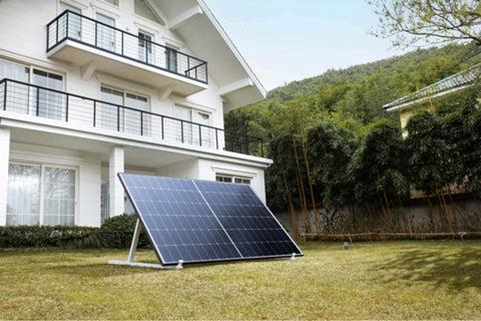Benefits of Solar Energy for Remote and Rural Areas
Solar energy has emerged as a powerful solution for providing reliable and sustainable power to remote and rural areas. These regions often face challenges related to infrastructure, accessibility, and energy reliability. Solar energy offers a practical and eco-friendly alternative to traditional energy sources, bringing numerous benefits. In this article, let’s learn the key advantages of solar energy for remote and rural communities.

Why Remote Areas Should Go for Solar Energy
Solar energy presents a viable solution to remote and rural areas, offering clean, renewable power that can be harnessed even in the most isolated locations. Understanding the benefits of solar energy can help these communities embrace a sustainable future.
Accessibility and Reliability
One of the most significant benefits of solar energy for remote and rural areas is its accessibility and reliability. Traditional power infrastructure can be difficult and expensive to extend to these regions. Solar energy systems, however, can be installed virtually anywhere the sun shines. This decentralized nature of solar power ensures that even the most remote communities can have access to reliable electricity, reducing their dependence on erratic or non-existent grid connections.
Cost Savings
Although the initial installation costs of solar panels can be high, the long-term cost savings are substantial. Solar energy eliminates the ongoing expenses associated with fuel for generators and reduces the need for costly infrastructure development. Once installed, solar panels have minimal maintenance costs and can provide free electricity for decades. This cost-effectiveness is particularly beneficial for rural communities with limited financial resources, allowing them to allocate funds to other essential services and development projects.
Environmental Benefits
Solar energy is a clean and renewable source of power, producing no greenhouse gas emissions or air pollutants. By adopting solar energy, remote and rural areas can significantly reduce their environmental footprint. This transition helps mitigate the effects of climate change and improves air quality, contributing to better health outcomes for local populations.
Economic Development
The adoption of solar energy can stimulate economic development in remote and rural areas. The installation and maintenance of solar systems create local job opportunities, fostering skills development and employment. Moreover, the availability of reliable electricity can boost local businesses, agriculture, and educational facilities. Improved energy access can lead to the establishment of new enterprises and services, driving economic growth and enhancing the quality of life in these communities.
Energy Independence
Solar energy offers remote and rural areas a degree of energy independence. By installing their own solar systems like the balcony power station 800 watt complete set and generating their own electricity, these communities are less vulnerable to external disruptions and price fluctuations in the energy market. This independence ensures a stable and predictable energy supply, essential for the growth and development of these areas.
Health and Education
Reliable access to electricity can have profound impacts on health and education in remote and rural areas. Solar energy enables the operation of health clinics, refrigeration for medicines, and lighting for extended medical services. In educational settings, solar power allows schools to use modern teaching tools, computers, and lighting, enhancing the learning environment, which is also crucial for the overall development of these communities.
Technological Advancements
Advancements in solar technology have made it more feasible and efficient for remote applications. Innovations such as portable solar panels, solar water pumps, and solar-powered communication systems have expanded the potential uses of solar energy in rural areas. These technologies provide practical solutions for daily challenges, from water access to connectivity, making solar energy an integral part of the development strategy for remote regions.
Conclusion
Solar energy offers a transformative solution for remote and rural areas, providing accessible, reliable, and cost-effective electricity. The environmental benefits, economic development opportunities, and improved health and education outcomes make solar energy a compelling choice for these communities. By embracing solar power, remote and rural areas can achieve energy independence and pave the way for a sustainable and prosperous future.



